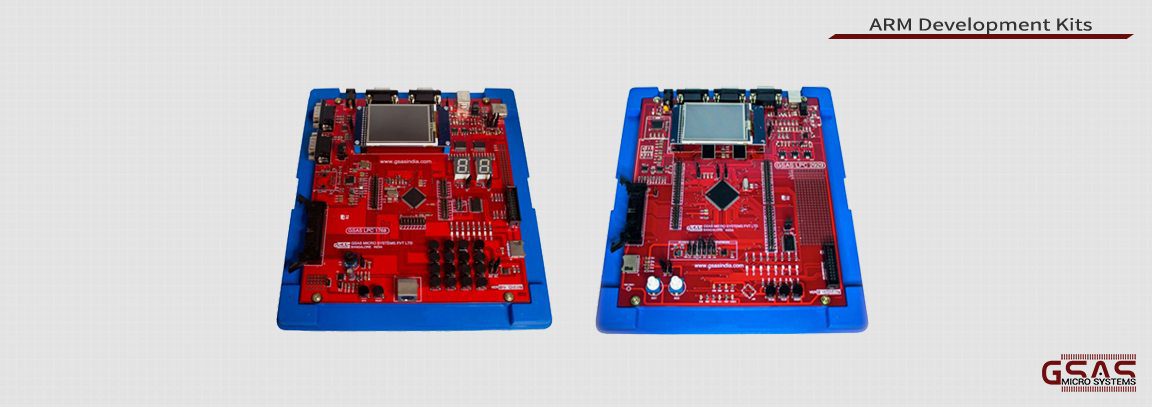GSAS LPC 1768
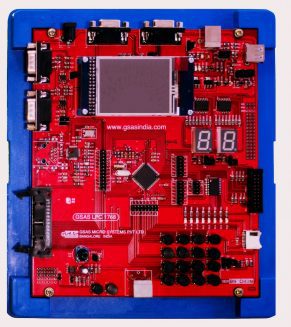
The GSAS LPC 1768 is a development and evaluation board that is built on the NXP LPC1768 platform, an ARM Cortex-M3 based microcontroller for embedded applications featuring system enhancements such as enhanced debug features and a higher level of support block integration. With its extensive features and capabilities, it is a board that can accelerate your development with ARM-based products. This board also serves as an excellent educational tool for training of next-generation embedded engineers at educational establishments.
GSAS LPC 2929
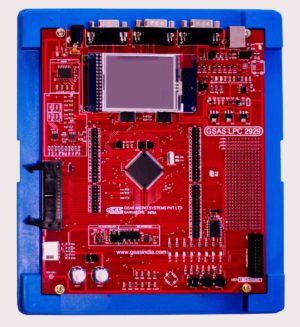
The GSAS LPC 2929 board is built around the NXP LPC 2929, an ARM9 processor-based device, allowing you to create and test working programs for this advanced architecture. This board has a wide range of interfaces making it a great starting point for your next ARM project.
Keil MCB 1800
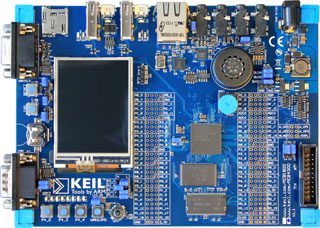
The Keil MCB1800 Evaluation Boards enable you to create and test working programs based on the NXP LPC1850 family of ARM Cortex™-M3 processor-based devices.
The MCB1800 Evaluation Board is available in two different configurations:
- The MCB1850 Evaluation Board is populated with an NXP LPC1850 device
- The MCB1857 Evaluation Board is populated with a NXP LPC1857 device
Arm MPS2+ FPGA Prototyping Board
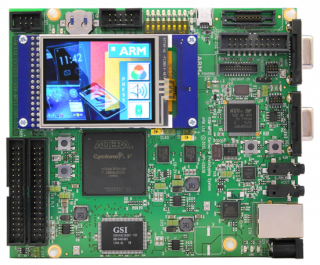
The Arm MPS2+ FPGA Prototyping Board, is an affordable development board. The platform offers a relatively large FPGA for prototyping Cortex-M based designs with a range of debug options. It also includes useful peripherals such as: PSRAM, Ethernet, touch screen, Audio, VGA, SPI and GPIO. The MPS2+ is supplied with fixed encrypted FPGA implementations of all the Cortex-M processors. The platform supports online software development using mbed
for the full Cortex-M family. It allows:
- Rapid FPGA prototyping for Cortex-M with example designs and software support
- Low cost feature rich FPGA development platform supporting the entire Cortex-M processor range
Arm MPS3 FPGA Prototyping Board
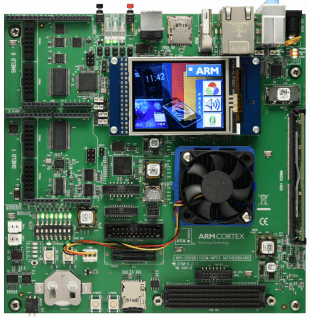
The Arm MPS3 FPGA Prototyping Board is an FPGA prototyping platform, which allows designers to design systems easily. The board features a large FPGA to implement complex embedded designs (even including small Cortex-A class cores) and many expansion connectors to plug in other systems. Key benefits of the MPS3 board include:
- FPGA capacity 5x larger than MPS2+
- A wide range of connectors and peripherals
- Prototype Linux applications

